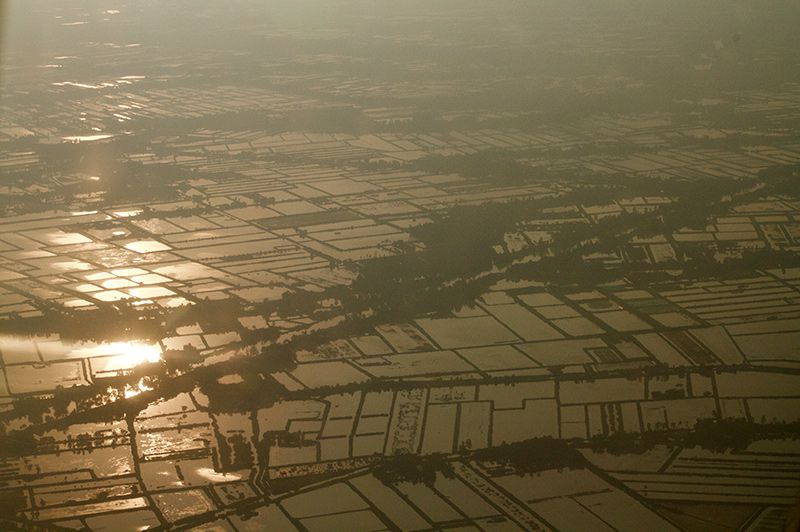Mekong Delta AWD Irrigation Technology
Published on by Water Network Research, Official research team of The Water Network in Technology
Proper irrigation, including the use of alternative wetting and drying methods, will help protect crops during the ongoing drought and saline intrusion in Cá»u Long (Mekong) Delta
Speaking during a seminar, experts from the regional Research Institute for Climate Change and the German Hanns Seidef Foundation gathered on Friday in southern Cần Thơ City.
They noted that severe prolonged drought and saline intrusion were endangering large crops in the delta, and they called upon farmers in affected areas to use essential irrigation techniques to minimise the damage to crops.
After discussing the estimated water level needed for specific plants and water-saving procedures, the agriculture scientists suggested a variety of irrigation methods, including the alternate wetting and drying (AWD) technology, which they said Mekong Delta farmers can use to reduce the amount of irrigation water needed in rice fields without decreasing yields.
Institute Deputy Director Lê Anh Tuấn said irrigation in agriculture was essential, due to the increasingly severe saltwater intrusion. He noted that famers might ensure equal distribution of water for crops to reduce water losses and maintain the fertility of the farm land.
Associate Professor Châu Minh Khôi from Cần ThÆ¡ University’s department of agriculture and applied biology suggested applying the AWD measure as an economical rice cultivation method.
Khôi said this would help save 9.9 to 19 per cent of needed water, adding that it would not affect grain productivity or increase land salinity.
In the region, the ratio of water used in agriculture was over 70 per cent, while in industry and local daily activities it was 22 and 10 per cent, respectively, according to the scientist.
The Mekong Delta is Viet Nam’s rice bowl, an agricultural wonder that churns out 40 per cent of the country’s entire agricultural production from just 10 per cent of its total land mass.
Farming has been the backbone of the country’s economic growth and stability over recent decades and the Mekong Delta is an important factor in its food programme. But climate change is threatening the nation’s agricultural output, as well as all other economic activities in the country.
In the Mekong Delta, floods during the June to November rainy season seem to have become more devastating, while seawater intrusion during the dry months from December to May has worsened.
Water-saving agricultural practices are thus expected to become increasingly adopted by farmers in the region, which is one of the most important rice-producing areas in the world, with typically three yearly irrigated rice crops.
AWD practices are commonly used as a water-saving practices in Asian farming.
When using wetting and drying techniques, fields are managed as irrigated lowland rice, while the top soil layer is allowed to slightly dry before irrigation is again applied.
Source: Vietnam News
Read More Related Content On This Topic - Click Here
Media
Taxonomy
- Agriculture
- Irrigation
- Technology